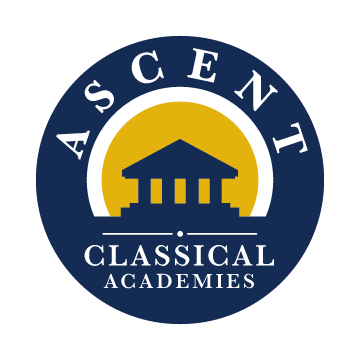Classical schools are unique among school choice options for three main reasons – a high or noble purpose, a content-rich curriculum, and a traditional classroom environment.
The Purposes of Classical Education
A classical school seeks to foster two things, individual happiness and a healthy regime.
Happiness is understood to be rooted in the virtuous use of our highest faculty, reason, and therefore entails participation in civil conversation. But what kind of conversation is this? Classical education does not teach students to banter or score a point in conversation as if it were a boxing match. Rather, it seeks the best kind of conversation, the one that asks what is good for a human being?, what is beautiful?, and how should I live my life? This requires not only a deep familiarity with our history and literature, but roots in the rigor of mathematics and science.
Classical education, then, is liberal education, or an education befitting a free human being. A healthy regime for us is a republic with historically rooted, cultured, and responsible citizens.
A Content-Rich Curriculum
A classical education delivers real content. Students learn about historical events, characters, stories, fables, myths, scientific facts, and mathematical proofs. They read whole books in great depth and learn to approach books both with moderation to learn and courage to question.
A republic is best served when its citizens can formulate historically rooted opinions, draw upon powerful myths, stories, allegories, and tales, and understand the basic workings of the natural world. Together, these abilities sustain the best kind of conversation and elevate the tenor of our common life.
A Traditional Classroom
A classical classroom prioritizes the authority of the teacher, and therewith his or her expertise and responsibility to deliver it to students. Students are not the passive recipients of knowledge, but active participants in the discussion. This disciplined and orderly environment facilitates attention, focus, and engagement.
Additional Resources
- A Classical Education for Modern Times by Dr. Terrence Moore
- An Introduction to Classical Education by Dr. Chris Perrin

